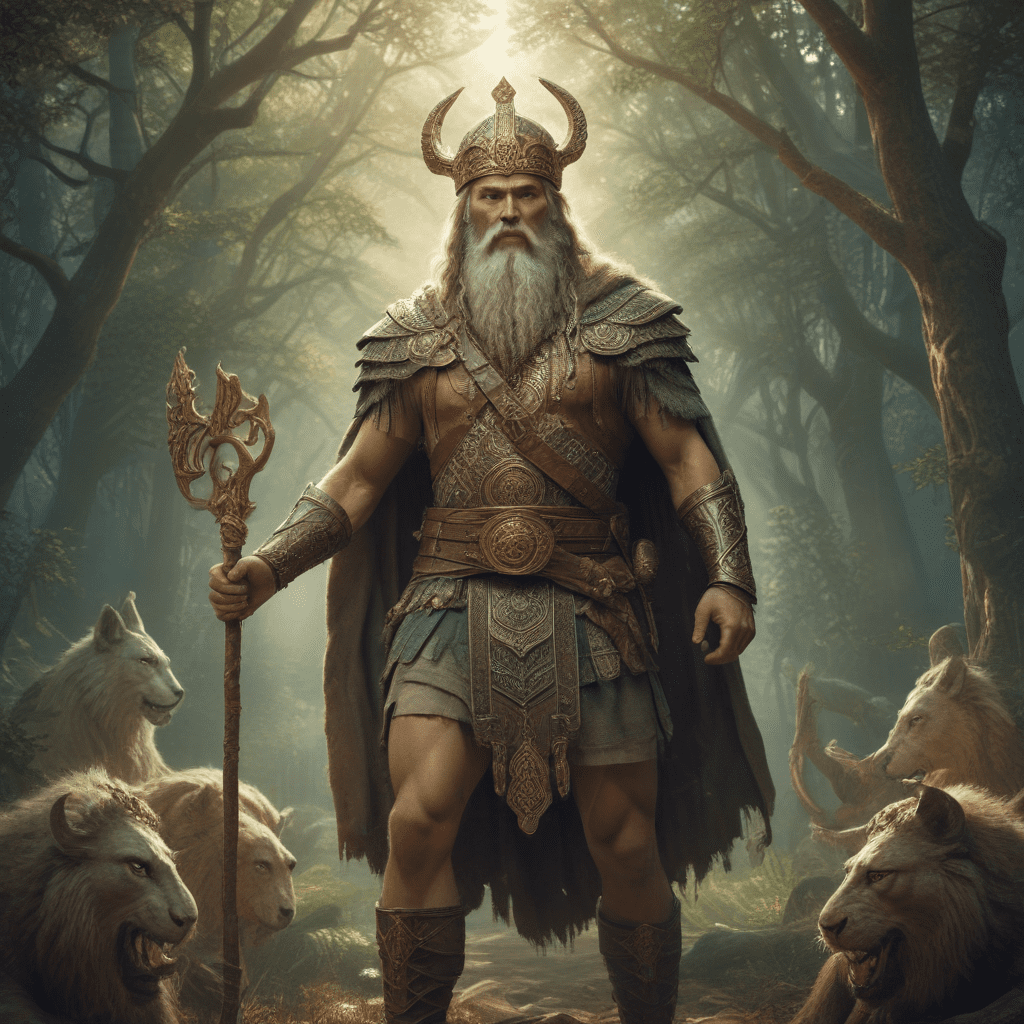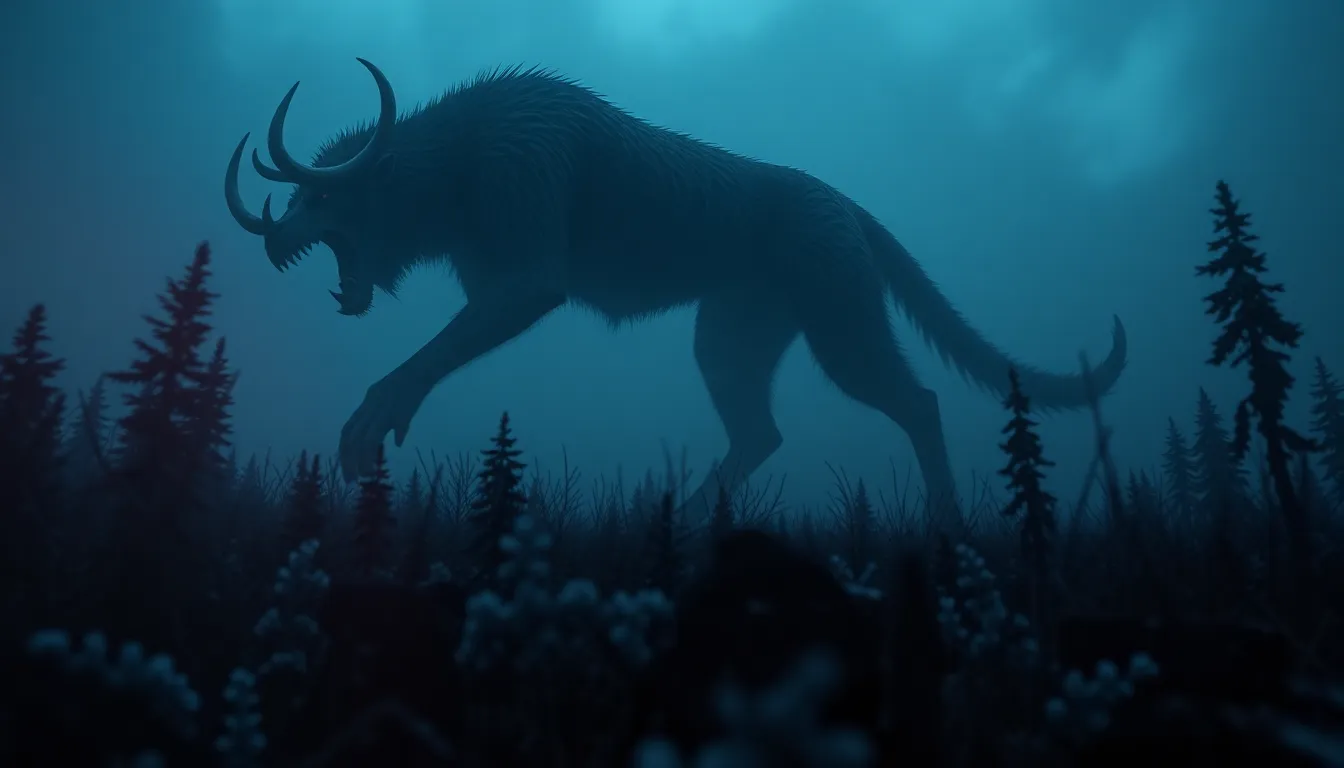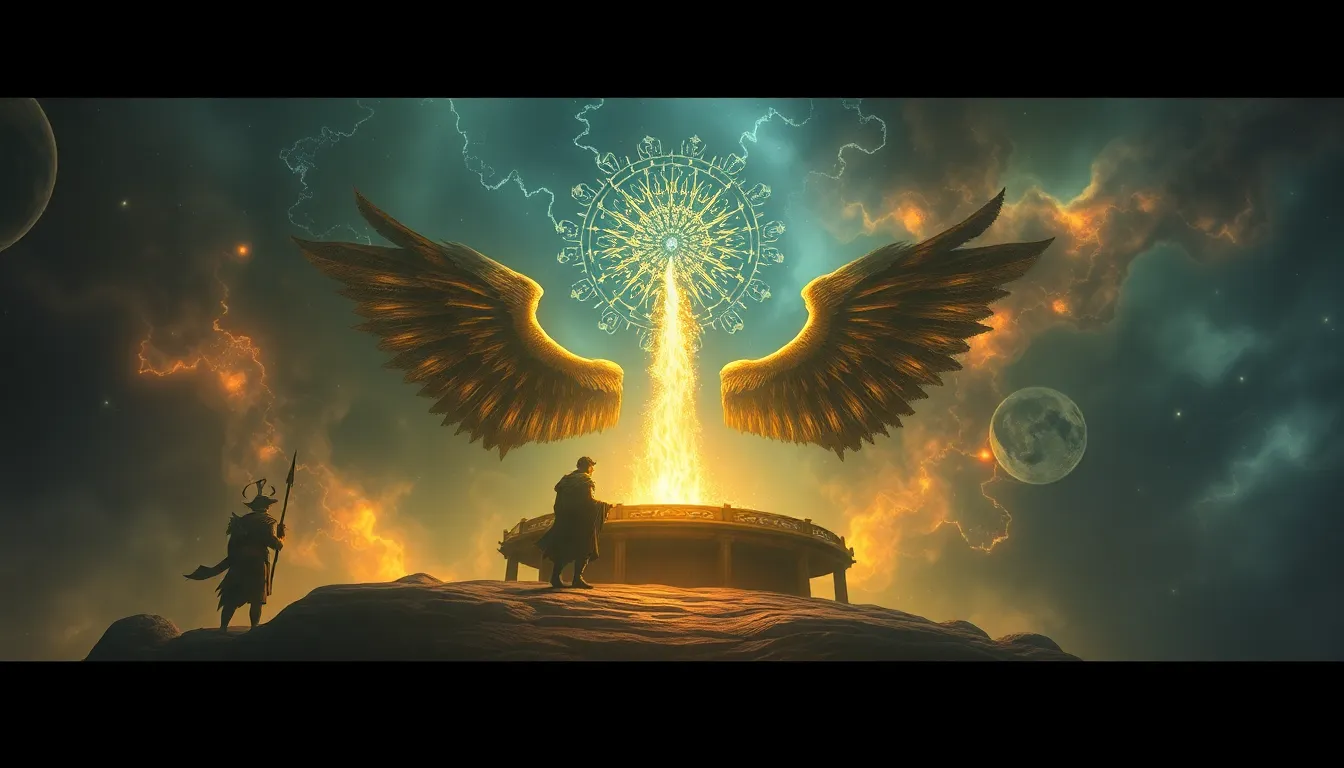Introduction: The Enchanting World of Slavic Mythology
Immerse yourself in the captivating tapestry of Slavic mythology, a realm teeming with tales of ancient wisdom and profound knowledge. Slavic cultures, spread across Eastern and Central Europe, have preserved a rich oral tradition, weaving a complex fabric of myths, legends, and beliefs that illuminate the human experience and offer timeless insights. These tales, often transmitted through generations of storytellers, embody the collective wisdom of the Slavic people, providing guidance, inspiration, and a profound connection to nature and the divine.
Ancient Origins: Exploring the Roots of Wisdom
Slavic mythology has its roots in the prehistoric era, when ancient Slavic tribes lived in close harmony with the natural world. Their beliefs and practices reflected this deep connection, and many of the deities, spirits, and creatures featured in Slavic myths are directly related to natural phenomena such as the sun, moon, stars, rivers, trees, and animals.
The All-Knowing Rod: A Symbol of Divine Insight
The Rod, also known as the Staff of Veles, stands as a powerful symbol of wisdom and knowledge in Slavic lore. Often depicted as a staff or a rod of wood or metal, it represents the axis of the world, connecting the heavens and the underworld. It is said to contain the wisdom of the ages and is used in magic and divination by those seeking divine guidance. This revered symbol embodies the belief that true knowledge comes from a higher source of awareness beyond human reason.
Veles, the God of Wisdom and Knowledge
In the pantheon of Slavic gods, Veles holds a revered position as the patron of wisdom, knowledge, magic, music, wealth, livestock, and the underworld. Associated with both the earthly and spiritual realms, Veles is seen as a guardian of secrets and a source of profound insight for his followers.
Tales of Yarilo and the Sun's Wisdom
The sun, revered as one of the most potent divine forces in Slavic tradition, plays a significant role in countless myths and tales. One such myth involves the sun deity Yarilo, a symbol of youth, vigor, fertility, and the life-giving power of nature. Stories of Yarilo often convey the wisdom embedded in the cycles of nature, the importance of embracing change, and connecting to the rhythm of the seasons and cosmos.
6. Baba Yaga: The Wise and Enigmatic Witch
Slavic folklore abounds with tales of Baba Yaga, a mysterious and enigmatic witch often depicted as a guardian of the border between the human and supernatural realms. Her dwelling, a hut that stands on chicken legs and can move about at will, serves as a liminal space where wisdom and trials intertwine. Seekers of knowledge who venture into Baba Yaga's domain must confront their fears and pass her enigmatic tests to gain access to her hidden wisdom.
7. The Magical Herb Kopeechnik: A Source of Knowledge
In Slavic mythology, the herb Kopeechnik holds a revered place as a source of knowledge and spiritual enlightenment. Its three leaves are said to represent the past, present, and future, granting those who consume it the ability to see beyond the veil of ordinary perception. Kopeechnik plays a prominent role in many Slavic rituals and traditions, symbolizing the power of plants to unlock hidden realms of wisdom and connect humans with the natural world.
8. The Symbolism of the Raven: A Messenger of Wisdom
The raven, a bird closely associated with wisdom and knowledge in Slavic tradition, serves as a messenger of the gods and a guide to the hidden realms. Its keen eyesight and ability to navigate both the earthly and spiritual worlds make it a potent symbol of divine insight. Ravens are often depicted as companions to wise figures in Slavic folklore, such as Veles and Baba Yaga, and their presence often signifies the revelation of important knowledge or guidance from the supernatural realm.
9. Interpreting the Myths: Seeking Wisdom in the Stories
Slavic myths are not mere tales of entertainment but repositories of profound wisdom that can guide and inspire our lives. They offer insights into the nature of reality, the human condition, and our place in the cosmos. By delving into the symbolism, characters, and themes of these myths, we can uncover timeless lessons that can help us navigate the challenges of life and embrace our own inner wisdom.
10. Legacy and Impact: The Enduring Wisdom of Slavic Mythology
The wisdom embedded in Slavic mythology continues to resonate with people today, offering valuable lessons and insights for navigating the complexities of modern life. From the symbol of the Rod to the enigmatic Baba Yaga, Slavic myths remind us of the importance of seeking knowledge, embracing our connection to nature, and valuing the wisdom gained through experience and reflection. By preserving and sharing these myths, we ensure their enduring legacy as a source of inspiration and guidance for generations to come.
FAQ:
What is the central theme of Slavic mythology?
Slavic mythology revolves around themes of wisdom, knowledge, the power of nature, and the interconnectedness of all living beings.Who are some of the major gods in Slavic mythology?
Prominent gods in Slavic mythology include Veles (wisdom and knowledge), Perun (thunder and lightning), Svarog (smithing and fire), and Dazhbog (sun).What is the significance of the Rod in Slavic mythology?
The Rod represents the axis of the world, connecting the heavens and the underworld, and symbolizes divine wisdom and knowledge.
What is the role of Baba Yaga in Slavic mythology?
Baba Yaga is a guardian of the border between the human and supernatural realms, and her enigmatic tests offer seekers of knowledge the opportunity to gain wisdom and enlightenment.How can we apply the wisdom of Slavic mythology to our lives today?
Slavic myths offer timeless lessons on seeking knowledge, embracing nature, and navigating the challenges of life with wisdom and courage.



